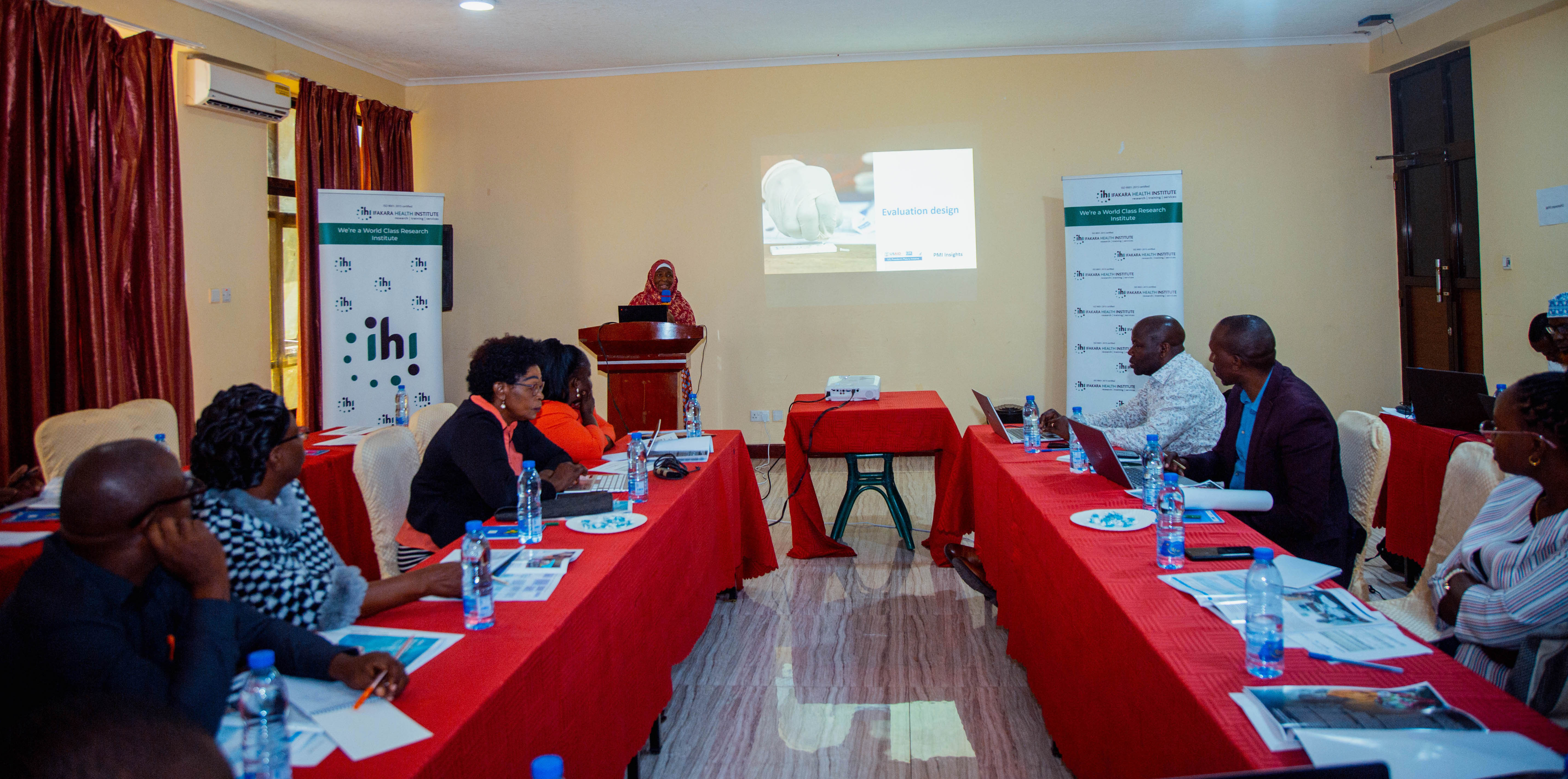
DISSEMINATION: Insights to strengthen malaria case management

Healthcare experts and stakeholders gathered in Dodoma, Tanzania, today for a national dissemination workshop on the Supportive Supervision (SS) program's evaluation.
The workshop, hosted by the Ifakara Health Institute and its partners, including the PMI Insights Project, the Centre de Recherche en Reproduction Humaine et en Démographie (CERRHUD), London School of Hygiene & Tropical Medicine (LSHTM), and PATH, aimed to delve into the findings of the SS program evaluation and discuss how to effectively apply these insights.
The workshop brought together participants from various organizations and regions, including the National Malaria Control Programme (NMCP-TZ), President's Office, Regional Administration, and Local Government, Tanzania (PO-RALG), Shinda Malaria, Dhibiti Malaria, President's Malaria Initiative (PMI) Tanzania, as well as regional and district malaria coordinators from the study sites and representatives of health facilities from each region where the evaluation was conducted.
Understanding the study
The study, launched in October 2021 and concluded in October 2023, centered on evaluating the impact of supportive supervision programs on healthcare worker performance and the management of uncomplicated malaria in Tanzania and Benin for children under 5 years.
Dr. Fatuma Manzi, the study’s Country Principal Investigator gave an overview of the study, describing the aim of the research in both countries Tanzania and Benin “the SS program evaluation aimed to explain how, why, and under what circumstances SS programs improve the facility-based management of uncomplicated malaria in children <5 years”.
Ultimately the purpose is to enhance the ability of program designers and implementers to strengthen SS programs to improve malaria case management in different countries based on lessons learned in Benin and Tanzania.
Challenges in malaria case management
Ifakara research scientist, Dr. August Joachim gave the audience a glimpse into the challenges faced in malaria case management in both countries, including understaffed health facilities, insufficient training for healthcare providers, shortages of malaria diagnosis and treatment supplies, and the influence of cultural beliefs and misinformation on healthcare-seeking behavior. These thoughts were confirmed by the stakeholders in the room.
How “SS” works
According to the World Health Organisation, supportive supervision is a process of helping staff to improve their own work performance with a focus on using supervisory visits as an opportunity to improve knowledge and skills of health staff. It encourages open, two-way communication, and building team approaches that facilitate problem-solving.
What was discovered
Dr. Joachim shared evidence from Tanzania and Benin, indicating that Coordinators and supervisors found the SS program credible and vital. This positive perception led Supervisees to make real changes in their malaria diagnosis and treatment practices, addressing clients' specific needs.
Four key activities drove this change: integrating the SS program into the public health system, frequent SS visits, adopting a coaching approach to supervision, and supervisors collaborating with their supervisees to create and implement quality improvement plans. These activities fostered a culture of ongoing improvement in supervised facilities.
How the evaluation was conducted
Yusufu Kionga, Ifakara Social scientist, presented an evaluation method, he explained that the evaluation were carried out in three stages, “...the first stage involved a literature review of SS programs that have been implemented and studied globally, and review of monitoring data of SS program data in Tanzania and Benin. The second stage involved the first round of empirical data collection and the last stage was the second round of empirical data collection.”
This evaluation was done in 2 regions and 5 councils in Tanzania and 4 facilities in Benin, totaling 218 in-depth interviews between the two countries. It involved SS program designers, coordinators, supervisors, supervisees, clients i.e parents of children <5 and actors indirectly influenced by the program (e.g., facility managers) which resulted in the final Program Theory & Framework for evaluation.
Ifakara developed SS framework
The team then introduced a comprehensive framework for assessing the effectiveness of ongoing Supportive Supervision (SS) programs. This valuable framework is designed for use by program designers and implementers and can be applied at a minimal cost, utilizing readily available data.
Dr. Manzi stressed the significance of this framework, as it allows decision-makers to identify weaknesses in current programs, comprehend their impact on subsequent components, and pinpoint areas for improvement to address these limitations.
In conclusion, the study showed that in the studied contexts, the effectiveness of SS programs in improving malaria case management is driven by the affective attitude, self-efficacy, and burden of the program perceived by its main actors. It is crucial to consider the thoughts and feelings of program actors throughout the design, implementation, and evaluation of SS programs to ensure their effectiveness.
For more photos from the workshop click here
